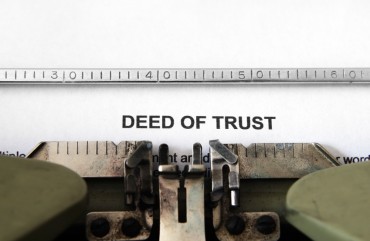For Individuals and Families
“While we all seem to have fundamentally similar hopes and concerns, it does not appear that there is any such thing as a typical family. Our aim is to understand you and your family and help secure its future.” – Previn Doshi, pwdlaw director.
Estate planning
Estate planning is broadly anything you do to maximise and preserve your wealth for yourself and your family, both during your lifetime and after your death. This can range from minimising tax to giving structure to the control of your wealth in terms of who benefits, when and how.
Your Will
Making your Will is an essential part of estate planning and the only way to control where your assets end up after your death. Your Will does not have to be complex, but more complex arrangements might suit you. This might be the case if you or your partner or spouse have a child or children from a previous relationship, or you feel it is important to ensure there is control over how your wealth is used, when and by whom (a trust arrangement).
If you have a child or children under the age of 18, we believe that it is automatically important for you to make a Will. This is because making a Will is the only way that you are able to choose who will look after and raise your children in the event that both parents die (assuming both have ‘parental responsibility’). Otherwise, the court will have authority over your children and decide who is appropriate to look after them. Please read our article ‘guardianship: what every parent of minor children needs to know’ by clicking on this link. https://pwdlaw.co.uk/guardianship-what-every-parent-needs-to-know/
Family trusts
Please click on this link to read our ‘dummies’ guide to trusts’, which we hope you will find informative. https://pwdlaw.co.uk/a-dummies-guide-to-trusts/
Wills and trust disputes
The High Court is dealing with a sharply rising number of cases where the validity of a person’s Will is under scrutiny. There are various concerns that can arise from the circumstances in which a Will was made and these can lead to serious disputes. To minimise the risk that your Will is challenged after your death, we recommend that you have your Will prepared by a qualified solicitor who is a specialist in inheritance tax and the administration of trusts. If your concerns are about someone else’s Will, whether it is because of the circumstances surrounding the creation of the Will, or because you are aggrieved at being left out of it, we suggest that you read our post in the ‘Knowledge’ section of this website entitled ‘4 ways to dispute a Will’ and then speak to us to see how we can help you.
Lasting powers of attorney (LPAs) and ‘advance decisions’ about medical treatment
In all likelihood, you will live your life and die without ever having lost the ability to look after your property and financial affairs or decide where you should live, what you should eat, wear, who you have contact with and what medical treatment you receive or do not receive. However, if you do lose these abilities, you need to be aware that your spouse or partner would not automatically assume the legal right to look after you and your possessions. You would need to create a LPA, a document in which you predetermine who will assume authority for you, which is normally registered with the court after creation, ready for use if needs be in the future. It is all part of contingency planning, like taking out life assurance or paying into a pension, and the creation of a LPA or LPAs (there are two types) can have a meaningful impact on the quality of your and your family’s lives. Making a LPA is an insurance policy of sorts on your future care.
Estate administration (Probate) and tax efficient post-death estate planning (including Will and intestacy variations)
Estate administration (commonly referred to as Probate) is basically the process after a person’s death by which the deceased personal representatives deal with the deceased’s estate for the benefit of those who are entitled to have it. Although this summary is oversimplified, it is an important process and the law behind it is vast. Many people appointed as executors are choosing to deal with a family member’s estate without legal advice and this can prove a cost-effective option when matters are genuinely straightforward. Estate administration can be complex, however, and there are sometimes significant tax planning opportunities or legal obligations and duties that exist without the personal representatives being aware. This is particularly the case when the Will contains an on-going trust. Whether you wish to extract a grant of probate or require full tax-efficient estate administration, we recommend that you speak to us. We will be happy to give you a seasoned and upfront view on legal costs and expected timescales if you are considering taking legal advice or even it you are involved in the process already but have concerns about whether you are doing the best or right thing.
Taking steps to plan your estate will help you ensure that the financial security you have worked to build up for yourself and your family is protected and maximised during your life and after you have died.
To discuss how we can help you further, please contact us direct on 01453 758999 or email us:
For Business Owners
It is important for business owners to consider the various ways in which their family, business partners and shareholders could be affected in the event of his or her death or mental incapacity.
While you cannot foretell your time of death or whether you will live your life free from accident or disease, what is certain is that you can prepare responsibly for the future by making both a Will dealing with your business interests and a business specific lasting power of attorney.
To discuss how we can help you further, please contact us direct on 01453 758999 or email us:
For Land Owners
The way land is owned and used can provide opportunities for the owners to carry out family and succession planning to ensure the best outcomes in terms of minimising taxation, controlling the management of the land and its use on an on-going basis, who benefits financially from the income and when, and whose hands the land itself eventually ends up in. The process should also reduce as much as possible the likelihood of future family or other disputes concerning the land.
For farmers, sometimes the major hurdle to overcome is the initial commitment to plan for the future since so much of what concerns them is current and time-consuming. For those wishing to plan for the future, we help farmers and land owners by working hand in hand with professionals such as land agents and the farmer’s accountant(s) to achieve the best practical and technical solutions. Our role is normally to oversee the process in the round, draft the legal paperwork, your Will and side papers, and ensure that everything dovetails together as it should. This allows our clients to concentrate on doing what they do best with additional peace of mind.
Farming operations are often viable businesses and, as with business owners, consideration of a suitable Will and arrangements in case of loss of mental capacity, is an important aspect of planning for the future.
To discuss how we can help you further, please contact us direct on 01453 758999 or email us:
Knowledge
pwdlaw 'Knowledge' section contains a selection of articles which you might find helpful to read.
Guardianship: what every parent needs to know about protecting their minor children
18 Mar 0 CommentsIt starts with a question. That question is: are you
A dummies’ guide to Trusts
04 Mar 0 CommentsSince it began notable development during 12th Century England, the
Letters of wishes (in a nutshell)
30 Jan 0 CommentsWhat is a letter of wishes and how should I use one? They
4 ways to dispute a Will
28 Jan 0 CommentsIntroduction There is no way to prevent someone from challenging
A 60-second insight on how Wills can go wrong
27 Jan 0 CommentsWhy are court cases regarding Wills on the rise? There
4 essential estate planning principles
19 Jan 0 CommentsEstate planning very broadly involves maximising your wealth and then
To discuss how we can help you further, please telephone us direct on 01453 758999 or email us:
Click here to read our Enquiry Policy
Contact Us
Please telephone us direct on 01453 758999 or email using the form below. Please firstly ensure to click on the link below the send button to read detailed information about our contractual relationship in the event that we accept you as a client of the firm. This includes detailed information about our legal charges and our policy in terms of responding to enquiries.
pwdlaw limited | Unit 1a Spillmans Court, Middle Spillmans, Rodborough, Stroud, Gloucestershire GL5 3RU
E: enquiries@pwdlaw.co.uk | T: 01453 758999
Designed in Stroud, Gloucestershire by Lucy Bourne





